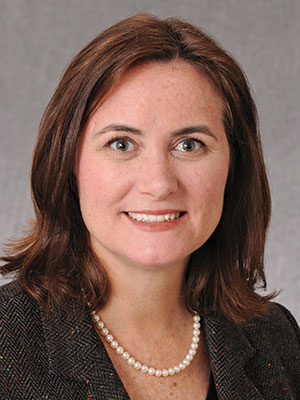
Pause. Now take a deep breath in, and a deep breath out.
Attendees at leadership coach Sara Melita’s Resilience is the Missing Piece on Monday were welcomed with a few “moments of Zen” to get them in the mood for learning about ways to identify and reduce burnout in the workplace.
The Medscape National Physician Burnout, Depression & Suicide Report in 2019 looked at what factors contributed to burnout, and, not surprisingly, bureaucratic tasks such as paperwork, contributed the most. That same survey showed rheumatologists are almost at the bottom of the list of physicians likely to seek help, at 16%.
“It’s why I’m so glad you came,” she said. “Not that you actually need help, but what we’re going to talk about is good to do anyway, even if you’re only moderately stressed. A lot of these wellness strategies help people feel more content and more peaceful. It’s not just a remedy to burnout.”
Throughout the interactive session, Melita offered ways for rheumatologists to increase their professional resilience and create a culture of wellbeing.
The World Health Organization recently deemed burnout a ‘syndrome,’ characterized as “feelings of energy depletion or exhaustion; increased mental distance from one’s job, or feelings of negativism or cynicism related to one’s job; and reduced professional efficacy.”
“It can increase compassion and empathy, and it can help bring more joy into what we’re doing,” she said about practicing wellness tactics. “There are also physical and mental health improvements. From an organizational perspective … it helps with turnover, satisfaction, and reduces errors.”
Melita asked the group to come up with signs of burnout in the workplace, and responses included disengagement, disconnection, and being on edge with family and friends after a long day of work; in other words, taking out stress on people by accident. She warned them of other signs such as emotional exhaustion, having a low sense of personal accomplishment, and depersonalization of the patient.
To avoid reaching the level of burnout, Melita suggested four strategies for healthcare workers to practice for improving well-being: reframing, gratitude, self-awareness, and self-care.
Reframing — or changing the way you look at something and changing your experience of it — can turn a stressful event or failure into a learning experience. She suggested building a good atmosphere around paperwork, perhaps making it a time where you treat yourself to a cup of tea, a sweet, or play relaxing music so you associate paperwork with a positive experience. A bad failure can be reframed as a learning experience — just a bad blip in an otherwise successful career.
“You either succeed or you learn,” an attendee chimed in.
Thinking about things you are grateful for is another tip for wellness that is scientifically demonstrated to be effective and correlated with happiness. Write down three things you are grateful for at each day, she suggested, but you can also train yourself to do it at other times.
“One of the most useful things that worked for me is called habit stacking,” Melita said. “You identify a habit you already have, and you stack it into a habit you’re trying to create. In addition to me doing these three good things at night trying to go to bed grateful, I also started the process of thinking about things I’m grateful for when I brush my teeth. Because we all brush our teeth … and if you can train your brain to do this, you start being grateful that you have teeth.”
Melita also addressed self-awareness — recognizing your emotions and the impact they have on your life — and taking time for self-care, such as getting a good night’s rest and reading a book (not a journal) and using PERMA: Five Steps to Flourishing (Positive emotions, Engagement, Relationships, Meaning, Achievement).
“And don’t underestimate the power of laughter!” she said at the end before playing a YouTube video of a baby laughing to ripping paper.


